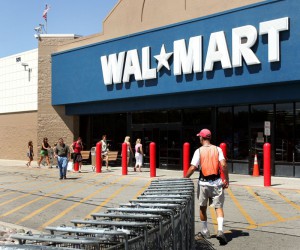Walmart Joins the Trend to Increase Minimum Wage
Minimum wage has always been a controversial topic. Proponents argue that minimum wage protects the working poor. Others feel that minimum wage slows job growth and discourages employers from hiring new employees. For most of America’s history, there was no minimum wage. While a first attempt at establishing a national minimum wage came in 1933, it wasn’t until United States v. Darby Lumber Co in 1944 that the Supreme Court held that Congress had the power under the Commerce Clause to regulate employment conditions.
 In November 2014, many states put the question of whether minimum wage should be raised to a vote. Voters in a number of those states have voiced overwhelming support in favor of higher minimum wage. Alaska, Arkansas, Nebraska, Delaware, Virginia, Rhode Island, Michigan, Minnesota, Connecticut, Maryland, and Massachusetts have passed higher wages that have been implemented as of January 2015. Cities such as Seattle, Portland, Louisville, and San Francisco have implemented higher minimum wages to support and grow their local economies.
In November 2014, many states put the question of whether minimum wage should be raised to a vote. Voters in a number of those states have voiced overwhelming support in favor of higher minimum wage. Alaska, Arkansas, Nebraska, Delaware, Virginia, Rhode Island, Michigan, Minnesota, Connecticut, Maryland, and Massachusetts have passed higher wages that have been implemented as of January 2015. Cities such as Seattle, Portland, Louisville, and San Francisco have implemented higher minimum wages to support and grow their local economies.
Most recently, Walmart made headlines when it announced that it planned to give its lowest paid employees a wage hike. By April, all employees would earn a minimum of $9 per hour. By February of 2016, the wage will be increased to $10 an hour. The wage hike will affect 500,000 workers.
Walmart can’t take credit for paving the road, however, as GAP and Ikea implemented higher minimum wages for employees last year. While the motive behind the move is mixed, there’s no denying that many other companies are likely to follow in the footsteps of the corporate giant. In fact, today Marshall’s and TJ Maxx announced that they plan to increase the wages of their employees to $9 an hour by June 2015.
Proponents of raising the minimum wage argue that it could have far reaching positive effects on the economy–both on local and national levels. Raising the minimum wage means that those workers are earning more and have more money to spend, thus stimulating the economy. The logic then follows that as people spend more, businesses grow and create an environment that requires more employees.
Additionally, supporters argue that if workers are surviving on higher minimum wage, they are not as likely to rely on social programs for support as they can now support themselves. As a result, there is less stress and expense placed on social programs. Additional positives noted are less turnover as employees with more earning potential are happier in their jobs and less likely to leave.
Needless to say, despite the positives, minimum wage increases has many worried. In fact, in San Francisco, Borderlands Books, a small science fiction, horror and fantasy, was set to close its doors on March 31st due to the wage hike. The wage hike was calculated to result in a 39% increase in wages for his employees in four years–a cost too high for the bookstore to maintain. (Note: Due to savvy business ideas, Borderland Books was able to keep its doors open–for 2015–through the implementation of membership programs and sale of bookstore memorabilia.)
Additional negatives that many believe are created by a minimum wage hike are layoffs, price increases, fewer hirings and increased competition. Smaller businesses simply cannot compensate the same number of employees at a higher wage and thus layoff many. In order to generate enough income to support the increased costs of wages, many business owners will raise the cost of their product. Small businesses also worry that they will not be able to increase their workforce because they won’t be able to afford to pay new employees.
No matter which side of the fence you stand, there is no doubt that minimum wage will be making headlines for the foreseeable future. The question is the impact it will have on the economy.


Comments